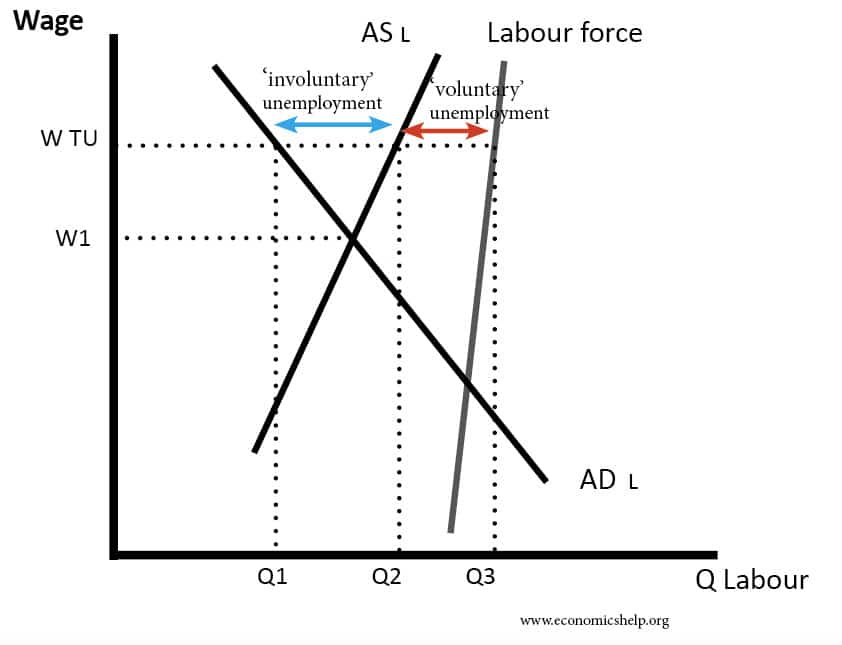Involuntary unemployment
Involuntary unemployment is a situation where workers are willing to work at the market wage or just below but are prevented by factors beyond their control. These factors could include deficiency of aggregate demand, labour market inflexibilities, implicit wage bargaining and efficiency wage theory. In Keynesian theory, involuntary unemployment is associated with insufficient aggregate demand …


